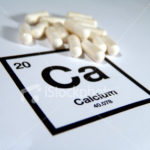Q & A with David Schwartz, Ph.D. of Innovative Science Solutions, LLC
As a law firm, we often work with consultants when a client’s needs require both legal and scientific expertise. For instance, if we are preparing a New Dietary Ingredient Notification for a client or a claim substantiation package or an evaluation of the safety and regulatory compliance of a dietary ingredient, the scientific consulting group Innovative Science Solutions, LLC (ISS) is the team of chemists, biologists, physiologists, and toxicologists that we often turn to for their scientific expertise. As an example of the kind of insight that we have come to rely on from ISS, we were interested in their take on the July 29, 2010, British Medical Journal article linking calcium supplements to an increased risk of myocardial infarction.[1] [BMJ – Calcium Supplements and MI] We spoke with David H. Schwartz, Ph.D., head of the Liability Support Practice at ISS about the findings from this study and the implications for individuals taking calcium supplements. (Editorial Comments)
Q: What type of study was this?
A: Actually, it was not original research, but rather an analysis of 11 separate, placebo-controlled clinical trials. This type of analysis across already completed trials is called a “meta analysis.”
Q: What were the investigators looking for?
A: The primary endpoints examined were myocardial infarction, first stroke, and first event for the composite of myocardial infarction, stroke, or sudden death.
Q: And how did they study this?
A: Each individual clinical trial publishes a single number to represent whether each of these events was more likely or less likely to occur with calcium supplementation. These investigators did a statistical analysis on all 11 placebo-controlled trials and determined whether each of the events was more or less likely to occur with calcium supplements.
Q: What did they find with respect to the effect of calcium supplementation and myocardial infarction?
A: Interestingly, when the clinical trials are examined individually, none of them found a statistically significant increase in the risk of myocardial infarction with calcium supplementation.
Q: And what did they find when they performed their meta analysis?
A: They found that of seven trials with data relevant to myocardial infarction, five of seven demonstrated a point estimate relative risk above 1.0, while only one demonstrated a point estimate relative risk below 1.0 – the seventh trial had no myocardial infarctions in either the placebo or calcium group. When they put this into their meta analysis, they found a statistically significant relationship between calcium supplementation and myocardial infarction.
Q: How strong was the effect?
A: Overall, individuals taking calcium supplementation were about 27% more likely to report a myocardial infarction than individuals taking placebo. A “modest” effect in the words of the author. In addition, the statistics were right on the edge of significance.
Q: Did calcium supplements have any effect on the other endpoints examined in this analysis?
A: No. The other endpoints examined – risk of stroke, risk of death, and risk of the composite endpoint of myocardial infarction, stroke, or death – were not significantly elevated in the meta-analysis.
Q: Calcium supplements are quite often given in conjunction with vitamin D. Was the effect of vitamin D examined in this analysis?
A: The study only examined calcium supplementation alone, not in conjunction with vitamin D, so no conclusions can be drawn about the effects of calcium supplementation in combination with vitamin D on myocardial infarction or any of the other endpoints examined.
Q: Do you think people should be concerned about taking calcium supplements based on the findings from this study?
A: In general, because the effect was “modest” and the statistics were so close to significance, I wouldn’t be overly concerned about the findings. As with all decisions pertaining to healthcare treatment, it is ultimately a risk-benefit assessment. An individual must weigh the risks against the well demonstrated benefits based upon careful consideration with his or her healthcare provider. This is one piece of important information for the risk side of the equation.
Q: Are there reasons these findings would be suspect?
A: As stated above, the findings are right on the edge of statistical significance and the absolute level of risk is relatively modest. In addition, as the authors state in their Discussion, data on cardiovascular events from the individual trials were not the primary endpoints evaluated and cardiovascular events were not gathered in a standardized manner. Finally, as stated above, because calcium supplements in the US tend to have vitamin D, it is difficult to interpret the implications of these findings to calcium supplementation in the US.
Q: Are there implications for product labeling based on this study?
A: From our review, these findings don’t appear to reflect a need for changes on the product label.
Q: What would you recommend that manufacturers do based upon the findings of this study?
A: It is critical for a manufacturer to be transparent about the risks and benefits of their products. Therefore, manufacturers should carefully consider adding information about this study to their website and to carefully monitor the scientific literature for future data that may be related to these and other potential health risks of calcium supplementation. In doing all this, it is important for manufacturers to work with knowledgeable medical and scientific counsel – both lawyers and consultants – to ensure that an appropriate articulation of the risk is evaluated and appropriately communicated to the consumer.
[1] Bolland M, Avenell A, Baron JA, Grey A, MacLennan GS, Gamble GD, Reid IR: Effect of calcium supplements on risk of myocardial infarction and cardiovascular events: meta-analysis BMJ 2010;341:c3691, doi: 10.1136/bmj.c3691 (Published 29 July 2010)
